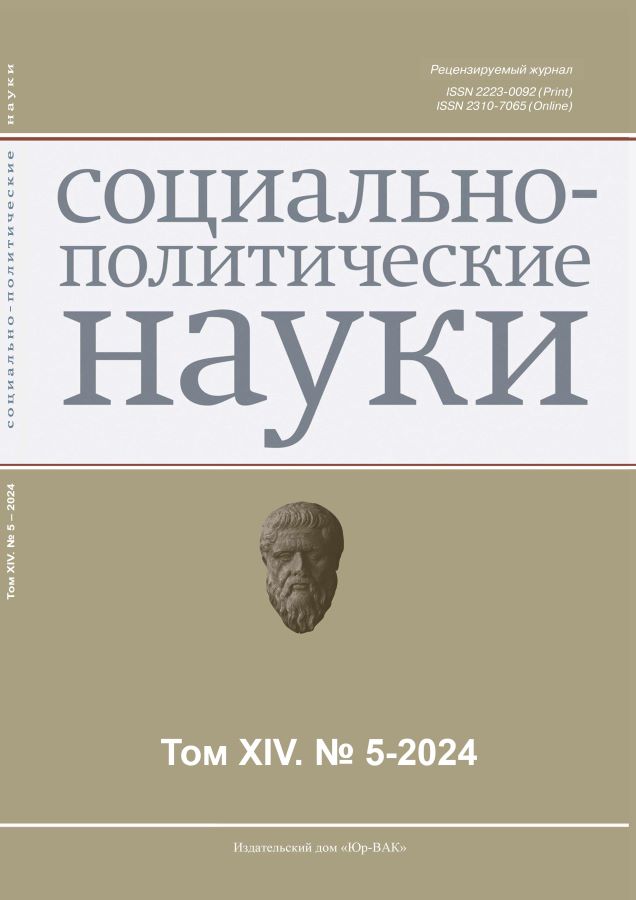Some United States of America approaches to cyber deterrence
- Authors: Kopylov A.V.1, Likhonosov A.G.1, Chichulin N.A.1
-
Affiliations:
- Zhirinovsky University of World Civilizations
- Issue: Vol 14, No 5 (2024)
- Pages: 15-23
- Section: History and Theory of Politics
- URL: https://journals.eco-vector.com/2223-0092/article/view/655307
- DOI: https://doi.org/10.33693/2223-0092-2024-14-5-15-23
- EDN: https://elibrary.ru/QUPCMI
- ID: 655307
Cite item
Abstract
The intensive development of information and communication technologies and the digitalization of all spheres of public life create not only conditions for the progressive development of mankind but are also accompanied by the emergence of new threats in cybernetic space. In the context of unprecedented scientific and technological progress, information flows are rapidly growing, while the number of malicious cyber-attacks on the information infrastructure of countries is increasing. To prevent and combat cyber threats, some States turn to the theory and practice of the concept of deterrence. The article examines the approaches of the United States to deterrence in cyberspace. The authors analyzed the conceptual apparatus, while the cybernetic space and the information space are considered as a part and a whole. Based on the analysis of the provisions of the US guiding documents on strategic planning, the evolution of the views of the American administration on deterrence in cyberspace is being investigated. It is concluded that cyber support has become one of the priorities in US defense policy, it is based on the integrated use of all instruments of state power (diplomatic, information, military, economic, financial, intelligence, legal), the conduct of offensive cyber operations not only in wartime, but also in peacetime, the development of inter-domain cooperation with allies and partners, the use of new artificial intelligence and quantum computing technologies. The conceptual approaches of American scientists to conducting deterrence operations in cyberspace at various stages of the development of a military conflict and the use of public attribution of cyber-attacks are studied. The influence of cyber deterrence on international information security and national security of Russia is considered.
Full Text
About the authors
Alexander V. Kopylov
Zhirinovsky University of World Civilizations
Author for correspondence.
Email: shashike@mail.ru
SPIN-code: 4262-3230
Dr. Sci. (Polit.), Professor; leading researcher
Russian Federation, MoscowAlexander G. Likhonosov
Zhirinovsky University of World Civilizations
Email: lihonosov1968@mail.ru
SPIN-code: 8065-7770
Dr. Sci. (Polit.), Professor; leading researcher
Russian Federation, MoscowNikolay A. Chichulin
Zhirinovsky University of World Civilizations
Email: nikolay.chichulin@yandex.ru
SPIN-code: 1798-9099
Dr. Sci. (Polit.), Professor; leading researcher
Russian Federation, MoscowReferences
- Dylevsky I.N., Bazylev S.I., Zapivakhin S.A. et al. On the views of the US administration on cyberspace as a new sphere of warfare. Military Thought. 2020. No. 10. Pp. 22–29. (In Rus.)
- Evgeniev D.N., Mccona S.A. Analysis of cyberweapon creation programs in the US Armed Forces. Scientific Thought. 2023. Vol. 23. No. 1, 2-1 (47). Pp. 77–85. (In Rus.)
- Korotkov A.G., Gavrilov M.V., Korotkova N.K. Cyberweapons as a priority means of armed struggle of the future. In: Problems of increasing the effectiveness of scientific work in the military-industrial complex of Russia. Materials of the VI All-Russian scientific and practical conference. S.N. Borisko (comp.). Astrakhan, 2023. Pp. 184–187.
- Markov A.S., Romashkina N.P. The problem of identifying the source (attribution) of cyber attacks – a factor of international security. World Economy and International Relations. 2022. Vol. 6. No. 12. Pp. 58–68. (In Rus.)
- Novoselsky S.O., Ksenofontova K.M., Zolkin A.L. et al. Analysis and consequences of intellectual emigration for the country’s economy in times of crisis. Eurasian Union: Issues of International Relations. 2023. Vol. 12. No. 6 (52). Pp. 680–692. (In Rus.)
- Shakirov O.I. Who will come with the cyber tag: approaches of Russia and the United States to deterrence in cyberspace. International Analytics. 2020. No. 4. Pp. 149–150. (In Rus.)
- McKenzie T.M. Is cyber deterrence possible? Perspectives on cyber power. Maxwell AFB, AL: Air University Press, 2017.
Supplementary files










